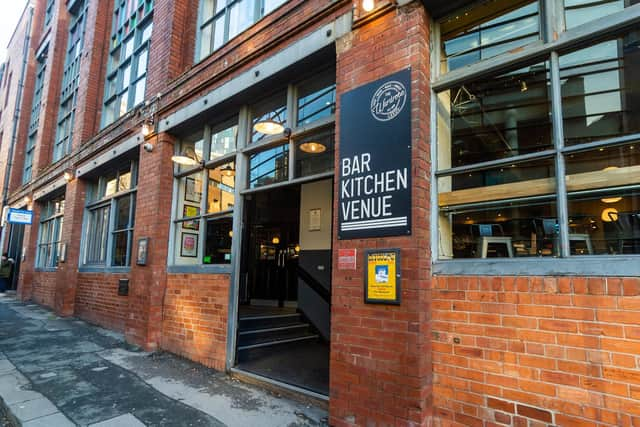How Leeds bars are acting on spiking as Home Affairs Committee issues warning to government
and live on Freeview channel 276
Establishments such as nightclubs, bars and pubs were placed under a spotlight when the boycott was arranged and the National Police Chiefs' Council reported 198 reported cases of drink spiking from 1 September up to and including 23 October. From 1 September up to and including 29 October, they reported 154 incidents of needle spiking.
Businesses in the nightlife industry in Leeds and across the country have initiatives in place to prevent incidents of spiking and make people feel safer in general.


Advertisement
Hide AdAdvertisement
Hide AdAt city centre bar The Wardrobe, they have a series of plans in place to keep customers safe and are also involved in a scheme which keeps them in communication with fellow bars over crime and anti-social behaviour.
The Wardrobe's front of house manager Alex Revilla said: "We've had regular meetings with Pubwatch, where a few areas and other bars go for meetings and give updates on what's basically going on in Leeds and what things can be prevented and what not, so we've got quite a lot of information.
"We have briefings with staff, we had every single member of staff go through the recommendations that the government gave us on what to do and how to react in case someone got injected. We have all the paperwork behind the bar as well. Obviously, [we] search bags for any substances that could spike people, we also have the 'Ask for Angela' campaign.
"If we know someone leaves the table, lets say to go for a cigarette or go to the toilet and they haven't covered their drinks, all the staff know to go over to their drink with a napkin so we know that drink has been looked after. Those are the main points we've been working on. To be honest, we've got a really good security team and they've been dealing with this for ages. It's something we've been dealing with since before Covid times really."
Advertisement
Hide AdAdvertisement
Hide AdThe Home Affairs Committee report has made a series of suggestions to tackle spiking, including the creation of a new spiking criminal offence. It has also claimed not enough is being done to support victims of spiking, something A Nation of Shopkeepers assistant manager Jesse Heaps agrees with.
Jesse said: "I think there definitely needs to be more support. I know people that have been spiked and it just seems like there's absolutely nothing there for them.
"We're always extremely cautious with any suspicious activity, everyone's just really aware and keeping their eyes out for anyone being suspicious around anyone or if anyone suddenly gets drunk.
"We do 'Ask for Angela' as well, and we've had a couple of people ask about that. We always clear drinks if they've been left, even just for a minute, because obviously you don't know if anyone has spiked it or anything."
Advertisement
Hide AdAdvertisement
Hide AdInitiatives such as 'Ask for Angela' have earned praise from Katie Russell, who is the chief executive and co-founder of Support after Rape & Sexual Violence Leeds, a dedicated crisis centre for women and girls in the city.
Also in news: Mum-of-three speaks out after terrifying spiking by injection ordeal in Leeds nightclub
Katie said: "There is more awareness than ever before about women and girls safety. There are great initiatives like the 'Ask for Angela' scheme, which is positive because it asks venues and businesses in the night-time economy that are making profit from the night-time economy basically, to take responsibility for creating safe spaces for everyone.
"We need to be targeting our messaging at the perpetrators and potential perpetrators themselves and saying 'we won't tolerate this behaviour, we are taking a zero tolerance approach'.
Advertisement
Hide AdAdvertisement
Hide Ad"The venues themselves and businesses themselves are the ones best-placed to do that, to implement that zero-tolerance policy, to make sure door staff and bar staff are well-trained to spot potential perpetrators and take action against them immediately, to help and support women and girls who might seem like they're in a difficult or vulnerable position or might have been targeted."
